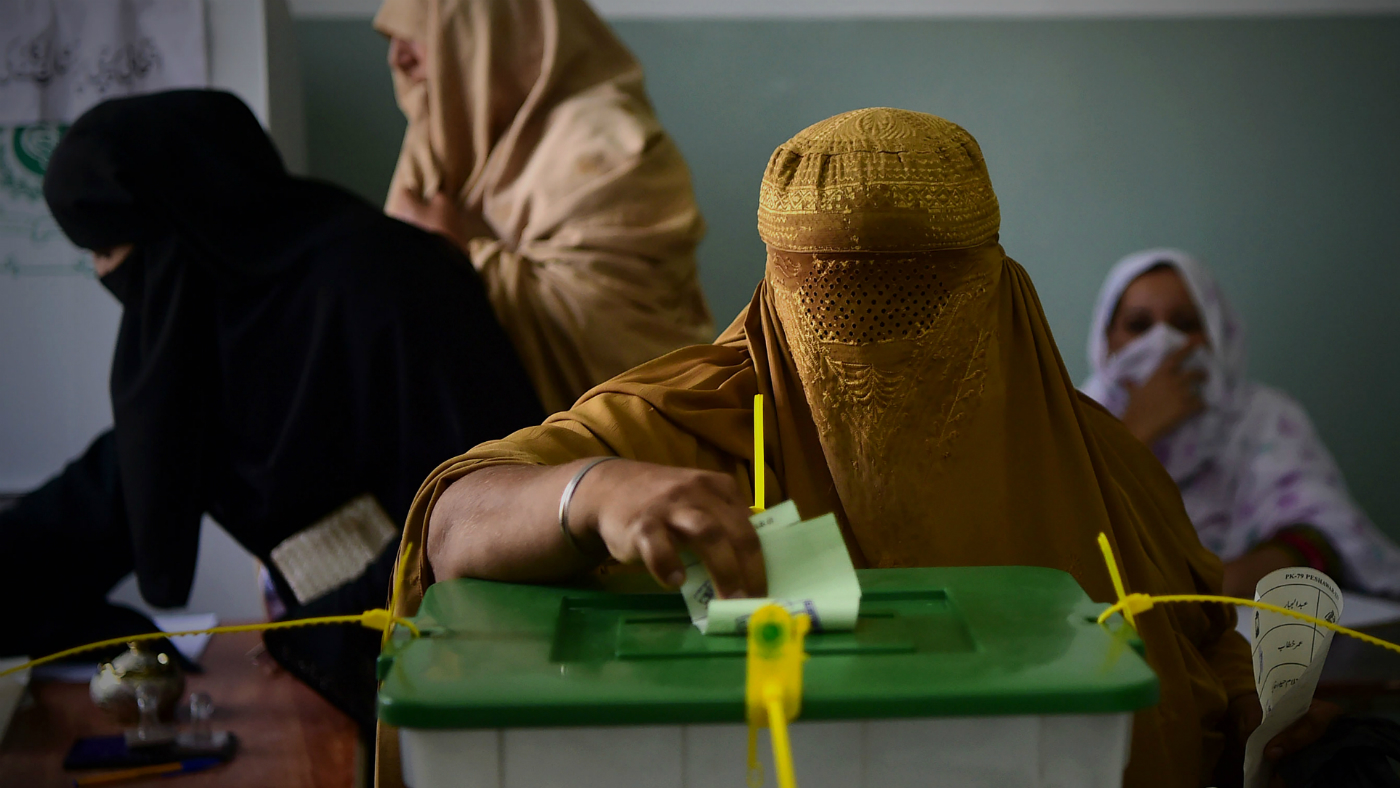Pakistan’s election explained in 300 words
Imran Khan and former PM Nawaz Sharif go head to head as turbulent election campaign draws to a close

A free daily email with the biggest news stories of the day – and the best features from TheWeek.com
You are now subscribed
Your newsletter sign-up was successful
Citizens of Pakistan headed to polling stations today to determine the country’s next leader.
Voting began at 8am local time (4am BST) and closed at 6pm (2pm BST).
Opinion polls indicate that the vote will come down to the wire between the parties of ex-cricket star Imran Khan and disgraced former prime minister Nawaz Sharif.
The Week
Escape your echo chamber. Get the facts behind the news, plus analysis from multiple perspectives.

Sign up for The Week's Free Newsletters
From our morning news briefing to a weekly Good News Newsletter, get the best of The Week delivered directly to your inbox.
From our morning news briefing to a weekly Good News Newsletter, get the best of The Week delivered directly to your inbox.
Here’s what you need to know:
Who is in the running?
“Outspoken cricketer-turned-politician” Khan is seeking to lead Pakistan, having “appealed to the masses, especially the younger generation”, with promises of “rooting out corruption” to create a “new Pakistan”, says Al Jazeera. The candidate of the centre-right PTI, Khan has vowed to create an Islamic welfare state.
His main challenger is Sharif, whose conservative PLM-N party is currently run by his brother Shehbaz. Nawaz was recently jailed for ten years following a corruption scandal uncovered by the Panama Papers in 2016.
A free daily email with the biggest news stories of the day – and the best features from TheWeek.com
Why is it important?
Since gaining independence in 1947, Pakistan has “oscillated between civilian and military rule”, the BBC says, adding: “This election will mark the second time that one civilian government has handed power to another after serving a full term - a historic landmark.”
However, the PML-N claims there has been a targeted crackdown of its activities by the intelligence services, with the help of the courts.
Has it been peaceful?
No. At least 31 people were killed in a bombing near a polling station in the western city of Quetta today, with other attacks reported across the country.
On 16 July, at least 149 people were killed in a suicide bombing targeting a candidate in the southwestern city of Mastung.
Army officials said that up to 370,000 troops had been deployed to ensure a “fair and free” election, while police estimate that the total security force at 800,000, CNN reports.